Are you in the competitive skincare market and seeking a skincare formula that can be a game-changer for your brand?
Leveraging insights from industry experts and years of market analysis, we offer trusted advice that can set your brand apart. Your quest for innovation stops here.
A skincare formula is a strategic asset that distinguishes your brand in a competitive market. It’s a crucial long-term investment for business growth and differentiation.
In this article, we will dissect the science behind this remarkable formula, its scalability for mass production, and its potential return on investment.
So keep reading to learn more!
1. Understanding Skincare Formulas
Skincare formulas are the blueprints behind every effective beauty product, dictating not only its texture and scent but also its efficacy. They consist of a combination of active ingredients, which target specific skin concerns, and inactive ingredients, which serve as the base or vehicle for the actives.
Understanding these formulas is crucial for anyone involved in the skincare industry, from manufacturers like Nako Cosmetic to dermatologists and even end consumers. The complexity of a skincare formula can vary widely, depending on the intended function of the product. For instance, a simple moisturizer may contain fewer ingredients compared to a specialized anti-aging serum.
It’s essential to scrutinize the ingredient list, also known as the INCI (International Nomenclature of Cosmetic Ingredients), to ensure the product meets industry standards and is suitable for your specific skin type or concern.

2. Core Components of Skincare Formulas
Understanding the core components of skincare formulas is akin to knowing the ingredients in a recipe; it’s essential for the outcome. Here are the key elements that often make up the backbone of skincare products:
Active Ingredients
- Retinoids: These vitamin A derivatives are renowned for their anti-aging and acne-fighting properties. They work by promoting cell turnover and collagen production, making them a staple in many anti-aging creams. For example, tretinoin is a commonly used retinoid in prescription anti-aging treatments.
- Antioxidants: Compounds like vitamin C and E serve to neutralize free radicals, offering protection against environmental damage such as pollution and UV rays, and are commonly incorporated into daytime serums and moisturizers.
- Peptides: These short chains of amino acids play a crucial role in skin repair and rejuvenation by signaling cells to produce more collagen, making them a popular choice for anti-aging creams and serums.
- Hyaluronic Acid: This substance is naturally found in the skin and works as a moisture magnet. It’s a staple in hydrating products like serums and moisturizers, and it can hold up to 1,000 times its weight in water making it incredibly effective for hydration.
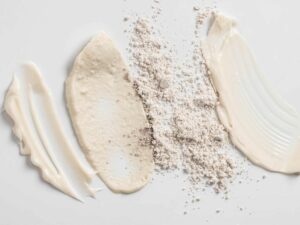
Carrier Agents
- Water-Based Solutions: These are lightweight and suitable for all skin types. They are often used in toners and serums to deliver hydration and active ingredients effectively.
- Oil-Based Solutions: These are more hydrating and are commonly found in moisturizers and night creams. They are particularly beneficial for dry or mature skin, providing a rich, emollient texture.
- Gel Carriers: These offer a lightweight texture and are often used in acne treatments and eye creams. They are excellent for delivering active ingredients in a non-greasy formula, making them popular in products designed for oily or combination skin.
Preservatives and Additives
- Parabens: Although controversial, parabens are effective preservatives that prevent bacterial growth in products. They are widely used but have come under scrutiny for potential health risks, leading some brands to seek alternative preservatives.
- Fragrances: These are added for sensory appeal but can be irritating for sensitive skin types. They are often synthetic but can also be derived from natural sources like essential oils.
- Colorants: These are used to give the product its color and are usually listed at the end of the ingredient list. They are generally safe but should be scrutinized if you have sensitive or reactive skin.

3. Types of Skincare Formulas
Whether you’re a skincare formulator, a retailer, or an end-user, understanding the different types of skincare formulas can help you make better choices and offer more targeted solutions. Here are some of the most common types of skincare formulas you’ll encounter.
Cleansing Formulas
Cleansing formulas are designed to remove dirt, oil, and makeup from the skin, serving as the first step in any skincare routine. These formulas often contain surfactants, which are compounds that help break down oils and lift away impurities. The choice of surfactants and other ingredients can significantly impact the cleanser’s effectiveness and how it feels on the skin.
Nako Cosmetic focuses on creating cleansing formulas that are both effective and gentle, aiming to maintain the skin’s natural pH balance. Whether it’s a foaming cleanser for oily skin or a cream-based cleanser for dry skin, the formulation’s core components are carefully selected to offer the best cleansing experience without stripping the skin of its natural oils.
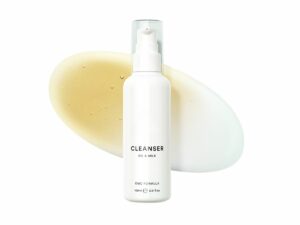
Toning Formulas
Toning formulas act as a second step in the skincare routine, designed to balance the skin’s pH and prepare it for subsequent products. They often contain ingredients like witch hazel, rose water, or glycolic acid, which serve different purposes such as tightening pores, hydrating, or exfoliating.
Toners can be formulated in various ways to suit different skin types and concerns. For instance, a toner for sensitive skin may avoid alcohol and fragrances, focusing instead on soothing ingredients like chamomile or aloe vera. The key is to choose a formula that complements your skin type and addresses your specific needs.
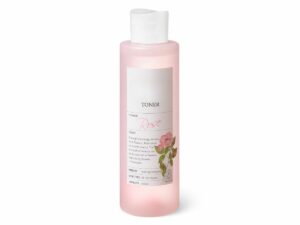
Moisturizing Formulas
Moisturizing formulas are essential for hydrating the skin and locking in moisture. They usually contain a mix of humectants, emollients, and occlusives, each serving a unique role in maintaining skin hydration. Humectants like glycerin attract water, emollients like fatty acids smooth the skin, and occlusives like beeswax seal in moisture.
The texture and feel of a moisturizer can vary widely, from lightweight lotions to rich creams. It’s crucial to select a formula that aligns with your skin’s needs, whether you require intense hydration or a non-greasy finish. The formulation will often indicate its suitability for different skin types, from dry and sensitive to oily and acne-prone.
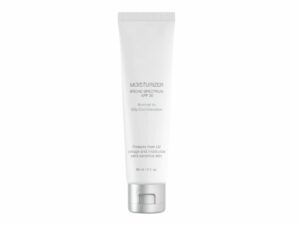
Serum Formulas
Serum formulas are concentrated solutions packed with active ingredients aimed at addressing specific skin concerns like aging, pigmentation, or acne. They are usually lightweight and fast-absorbing, designed to penetrate deeply into the skin. Actives like retinol, hyaluronic acid, and peptides are commonly found in serums.
Because serums are so concentrated, they offer a potent dose of active ingredients, making them a valuable addition to any skincare routine. However, it’s essential to use them cautiously, especially if you’re new to certain activities. Always patch tests and gradually introduce new serums into your routine to monitor how your skin reacts.
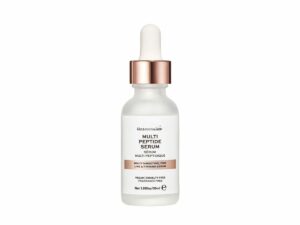
4. The Right Formula for Different Skin Concerns
Choosing the right skincare formula is crucial for addressing specific skin concerns effectively. Here are some guidelines for selecting the right formula based on various skin concerns.
Acne-Prone Skin
For acne-prone skin, look for formulas containing salicylic acid, benzoyl peroxide, or tea tree oil, which are known for their antibacterial and anti-inflammatory properties. These ingredients can help unclog pores and reduce acne flare-ups.
Do’s
- Opt for non-comedogenic products to avoid clogging pores.
- Include a gentle exfoliant in your routine to remove dead skin cells.
- Use oil-free moisturizers to hydrate without causing breakouts.
- Do a patch test on new products to ensure they don’t exacerbate acne.
Dont’s
- Avoid using alcohol-based toners as they can dry out your skin.
- Picking or squeezing acne as it can lead to scarring.
- Overuse of acne treatments; follow the recommended usage.
- Don’t skip sunscreen, even if you think it exacerbates your acne.
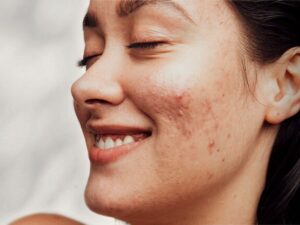
Sensitive Skin
For sensitive skin, opt for formulas that are free from irritants like fragrances, alcohol, and synthetic colorants. Ingredients like chamomile, aloe vera, and calendula are often included for their soothing properties.
Do’s
- Choose hypoallergenic and fragrance-free products.
- Always perform a patch test before using a new product.
- Use a gentle, hydrating cleanser.
- Do keep your skincare routine simple to minimize irritation.
Dont’s
- Using products with high concentrations of actives like retinol.
- Don’t exfoliate too frequently, as it can irritate the skin.
- Using hot water for cleansing; lukewarm is best.
- Don’t switch products too often; give your skin time to adjust.
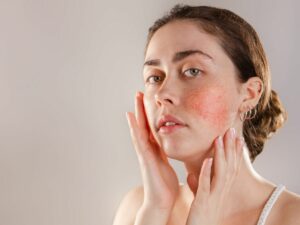
Aging Skin
For aging skin, formulas rich in antioxidants, peptides, and retinoids are most effective. These ingredients work to improve elasticity, reduce wrinkles, and boost collagen production.
Do’s
- Include a serum with active ingredients like retinol or peptides.
- Use a moisturizer with SPF during the day.
- Opt for products with hyaluronic acid for hydration.
- Incorporate a night cream to nourish the skin while you sleep.
Dont’s
- Don’t skip eye cream, as the skin around the eyes is delicate.
- Using harsh cleansers that can strip the skin of natural oils.
- Don’t forget the neck and décolletage in your skincare routine.
- Neglecting proper nutrition and hydration, as they impact skin health.
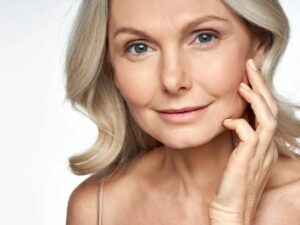
Hyperpigmentation
For hyperpigmentation, look for formulas containing ingredients like vitamin C, kojic acid, or licorice root extract. These ingredients can help lighten dark spots and even out skin tone.
Do’s
- Use broad-spectrum sunscreen to prevent further darkening.
- Include a vitamin C serum in your routine.
- Exfoliate regularly to accelerate cell turnover.
- Do consult a dermatologist for persistent hyperpigmentation.
Dont’s
- Using skin-lightening products without proper research.
- Don’t skip the patch test, especially for potent formulas.
- Don’t expect overnight results; treating hyperpigmentation takes time.
- Combining multiple actives without professional guidance.
Choosing the right skincare formula for your specific concern can make a significant difference in the effectiveness of your skincare regimen. Keep these guidelines in mind to make informed choices.
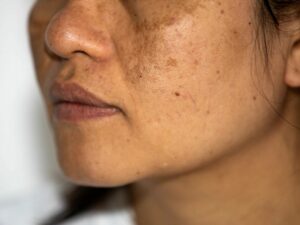
5. Organic vs. Synthetic Formulas
Understanding the difference between organic and synthetic skincare formulas can help you make more informed choices. Below, we delve into the differences between each.
By weighing the difference between organic and synthetic formulas, you can make a more informed decision that aligns with your skin care needs and ethical considerations.
6. Ethical Considerations in Skincare Formulas
When choosing or formulating skincare products, ethical considerations are increasingly becoming a focal point. Here are some key ethical considerations to keep in mind.
Animal Testing
Animal testing has long been a contentious issue in the skincare industry. Many consumers and organizations advocate for cruelty-free products that do not involve animal testing at any stage of development. Opt for brands that are certified cruelty-free to ensure no animal testing is involved. Be aware that some countries require animal testing for imported cosmetics, which complicates the issue.

Sustainability
Sustainability involves the responsible sourcing of ingredients and eco-friendly manufacturing processes. It also extends to the packaging and overall carbon footprint of the product. Look for products with recyclable or biodegradable packaging to minimize waste. Consider the sourcing of ingredients; for example, palm oil should be sustainably sourced to avoid contributing to deforestation.

Ingredient Ethics
This refers to the ethical sourcing and trade of ingredients used in skincare formulas. Fair trade practices and the absence of child labor are significant factors here. Opt for products that use fair trade ingredients to ensure ethical labor practices. Be cautious of exotic ingredients that may be sourced unethically or contribute to habitat destruction.

Transparency
Transparency in skincare involves clear labeling, full disclosure of ingredients, and openness about sourcing and manufacturing practices. Brands that offer full transparency are generally more trustworthy. Utilize QR codes or apps that provide detailed information about the product’s supply chain, as seen in some forward-thinking brands.
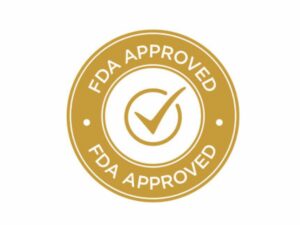
7. 4 Essential Tips to Consider for Choosing Effective Skincare Formula
Selecting the right skincare formula is more than just picking a product off the shelf; it requires careful consideration. Here are some essential tips to guide you in choosing the most effective skincare formulas.
#1 Target Market Skin Types
Knowing the skin types prevalent in your target market is crucial for curating a product line that addresses specific skincare needs. Conduct market research or collaborate with dermatologists to identify common skin issues such as acne or sensitivity in your target demographics. This data will inform your selection, ensuring you stock products that are both effective and relevant.
| Skin Type |
Key Characteristics |
Considerations |
| Normal |
Balanced oil and moisture content. Not too dry or oily. |
Gentle ingredients Balanced hydratio. Lightweight formulas |
| Oily |
Excess sebum production. Prone to acne, enlarged pores, and shininess. |
Non-comedogenic ingredients. Oil-control properties Mattifying agents |
| Dry |
Lacks moisture. Can feel tight and may exhibit flakiness or rough patches. |
Deep hydrating ingredients. Emollients. Essential oils or ceramides |
| Combination |
Exhibits characteristics of both oily (usually in the T-zone) and dry skin. |
Zone-specific treatment. Lightweight hydrators. Gentle exfoliants |
| Sensitive |
Reacts easily to products. Prone to redness, irritation, and itching. |
Hypoallergenic ingredients. Fragrance-free. Soothing agents like aloe vera or chamomile |
| Mature |
May have fine lines, wrinkles, and age spots. Loss of elasticity and moisture. |
Anti-aging ingredients. Collagen boosters. Antioxidants like vitamin C |
| Acne-Prone |
Prone to breakouts and inflammation. Often associated with excess oil, but dry skin can also experience acne. |
Salicylic acid or benzoyl peroxide. Non-comedogenic formulations. Anti-inflammatory agents |
#2 Clinically Proven Ingredients
When it comes to business transactions, the efficacy of the ingredients can be a significant selling point. Opt for formulas that contain clinically proven ingredients, such as retinol for anti-aging, which can be a strong market differentiator. Ensure that the products have the necessary certifications, whether it’s dermatologically tested, organic, or cruelty-free, to meet the demands of educated buyers.
#3 Bundling Compatible Products
Consider how the products in your potential lineup will complement each other, as bundling compatible products can be an effective sales strategy. For instance, a vitamin C serum may pair well with a hyaluronic acid moisturizer but not with a benzoyl peroxide acne treatment. Understanding these interactions can help you create more compelling package deals or retail sets.
#4 Market-Driven Product Selection
Being attuned to market demands can give you a competitive edge. Conduct thorough market research to identify trending ingredients or skincare concerns that are currently underserved. This will allow you to offer solutions that are both innovative and in high demand, thereby increasing your market share.
By following these guidelines, distributors and wholesalers can make more informed decisions, ensuring the selection of skincare formulas that are not only effective but also align with market needs and professional standards.
Dive Deeper Into Our Resources
Looking for more diverse product options? Browse through our handpicked selections:
Still haven’t found what you’re looking for? Don’t hesitate to contact us. We’re available around the clock to assist you.
Conclusion
Choosing the right skincare formula is an essential but often complex task; this guide provides the insights you need to make informed decisions. From understanding core components to ethical considerations, we’ve covered the essentials to help you navigate the skincare landscape.
If you’re looking for skincare solutions that align with these principles, Nako Cosmetic offers a range of effective, ethically formulated products. For more information, feel free to contact us today.














